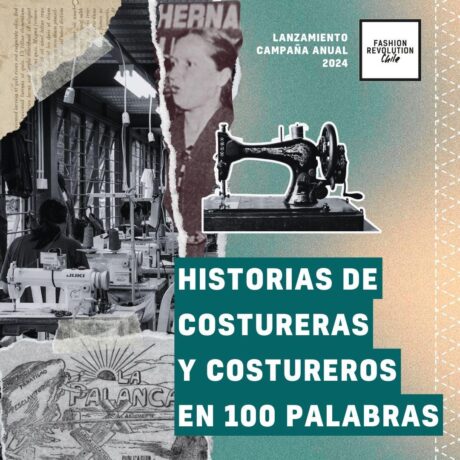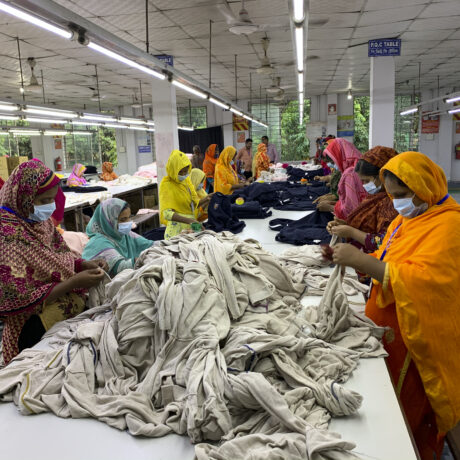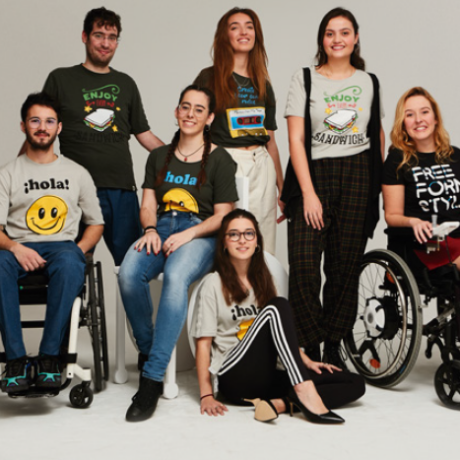Fair Trade as a Tool to Empower Women and Girls
In 1908, 15,000 women marched through New York City to demand shorter working hours, better pay and voting rights. This was the beginning of a movement from which International Women’s Day was born. Decades later, in 2011, the United Nations marked the 11th of October as the first International Day of the Girl Child, highlighting the continuing challenges which young girls still face in communities across the globe; especially in relation to accessing education, being safe from violence and exploitation. Within the fashion industry, the pressure to meet the demands of conventional fast fashion companies is enormous. To stay competitive, manufacturing factories keep their overheads low by paying low wages for workers. Child labourers can be paid even less and are an attractive proposition for employers. Parents are forced to send their children, including young girls to work in conditions which are unsafe in order to create enough income to sustain the family.
As a Fair Trade company, People Tree works with many social businesses who not only create decent employment and pay fair wages, but who also invest in their local community. For example, by funding schools, medical support and awareness raising on the rights of women and girls. We support communities in India, Bangladesh and Nepal who empower girls by giving them access to education and vocational training. By focusing on empowerment of women through dignified and artisanal work, we help keep handicraft traditions alive, as well as offer opportunities to help strengthen these communities and continue to support their learning and development. Equal opportunities are reflected throughout People Tree’s supply chain, where 56% of leadership roles are held by women.
In rural Bangladesh, girls are often not given opportunities to go to school, instead they are encouraged to stay at home to help around the house and to get married very young. People Tree works with Swallows, an NGO set up to empower the poor and underprivileged population, especially women, in the village of Thanapara. Swallows runs a handicrafts program which makes beautiful hand woven and hand embroidered garments. This business helps to fund Swallows’ development work in the local area, and the empowerment of girls and women is central to their work.
Mrs Gini Ali, Assistant Director at Swallows, feels that discrimination and lack of opportunity for women in Bangladesh are the biggest barriers to improving living conditions there. She says:
“The Fair Trade principles applied by People Tree have created economic stability for Swallows, allowing it to become an independent organisation, this has led to the empowerment of the women of Thanapara.”
Swallows funds schools and awareness raising to ensure that girls have the same chance to study as boys. They raise awareness amongst parents, sharing the importance of education for young girls and its benefits for the family and the community. As well as sharing the importance of education, Swallows raises awareness around the issue of child marriage and the negative impacts this can have. Swallows provides free training opportunities for young women and also sponsor young women to study part time whilst the work part time making Fair Trade clothing. As well as this they offer legal support to local women who are victims of domestic violence and raise awareness locally on the issue.
In Nepal, People Tree partners with Kumbeshwar Technical School (KTS). Originally set up as a vocational training centre, KTS has now developed into a Fair Trade business creating beautiful hand knitted products. Established in 1983 with the goal of breaking societal barriers created by Nepal’s caste system, KTS was set up to help Pode people, the so-called ‘untouchable’ caste in Nepal. Those born into the Pode caste are expected to clean the sewers and streets of the areas inhabited by higher castes for no more than scraps of leftover food. The discrimination which keeps these people out of other forms of work even affects children, who may drop out of primary school because they are unable to fit in. Until recently, Pode children did not go to school at all.
KTS now offers employment to 2,273 women who come from economically disadvantaged backgrounds. On top of this, the profits from Fair Trade helps fund vocational training; a school; a day care centre for over 250 children from low income families and an orphanage.
Both KTS and Swallows are both ‘Guaranteed Fair Trade Organisations’ by the World Fair Trade Organisation (WFTO). This recognises that the whole of the company is 100% dedicated to Fair Trade and ensures that all the groups adhere to the WFTO’s 10 Fair Trade Principles. Key to these 10 principles is Principle Six: ‘Commitment to Non Discrimination, Gender Equity and Women’s Economic Empowerment’. At People Tree we believe that Fair Trade business is a key driver in the empowerment of women and girls worldwide.
For more information about how People Tree supports women and girls, please contact us for a copy of our Social Review and read about People Tree’s latest Campaign Against Child Labour in our digital edition of the Eco-Edit: http://www.peopletree.co.uk/eco-edit











